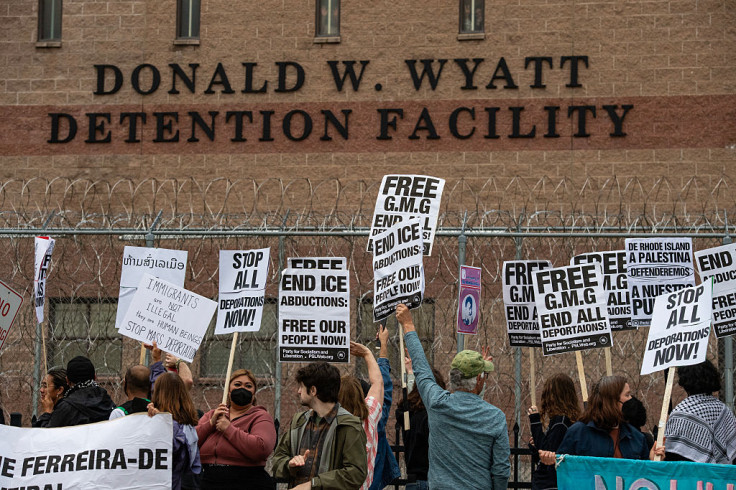
A growing number of sheriffs and law enforcement officials across the U.S. are raising concerns about the legal risks of holding individuals on behalf of Immigration and Customs Enforcement (ICE) without a judicial warrant.
Under the Trump administration's aggressive deportation strategy, ICE has increasingly relied on local agencies to detain individuals suspected of being in the U.S. unlawfully. This is often done through a tool known as an ICE detainer — a request to hold a person for up to 48 hours after their scheduled release. However, detainers are administrative requests and not warrants signed by a judge.
As Minnesota Attorney General Keith Ellison told Axios:
"The ICE administrative warrant is not enough to hold somebody's liberty away. It's essentially holding somebody and locking them up when there's no legal, lawful authority to do so"
Officials warn that honoring ICE detainers without a judicial warrant can expose local governments to civil liability. In fact, a New York City case resulted in a $92.5 million payout for wrongfully detaining over 20,000 people between 1997 and 2012.
Some sheriffs have publicly expressed concern about the situation. Dan Marx, sheriff of Winneshiek County, Iowa, stated in a since-deleted Facebook post that ICE detainers violate constitutional protections:
"The only reason detainers are issued is because the federal agency does not have enough information or has not taken the time to obtain a valid judicial warrant. These detainers are violations of our 4th Amendment protection against warrantless search, seizure and arrest, and our 6th Amendment right to due process."
Meanwhile, the National Sheriffs' Association has asked the Trump administration and Congress for guidance and legal protections related to ICE detainer practices. The group also has been lobbying Congress to pass a law addressing the issue for sheriffs, who often manage jails.
Sheriffs are also dealing with mounting pressure from advocates and immigrant rights groups who are pleading them to take distance from federal immigration enforcement. During last week's National Sheriffs' Association conference in Florida, about 30 activists presented a letter signed by more than 12,000 people urging sheriffs across the country to withdraw from controversial 287(g) agreements that deputize local officers as federal agents.
In Florida, every county sheriff's department in the state has entered into some form of 287(g) agreement. Some cities such as Hollywood and West Palm Beach, as well as others, are also participating.
As enforcement tactics intensify, law enforcement leaders say they face increasing pressure. "If they speak up too much," said retired Iowa police chief Mark Prosser, "then perhaps an immigration enforcement activity is going to come to a community near you."
© 2025 Latin Times. All rights reserved. Do not reproduce without permission.










